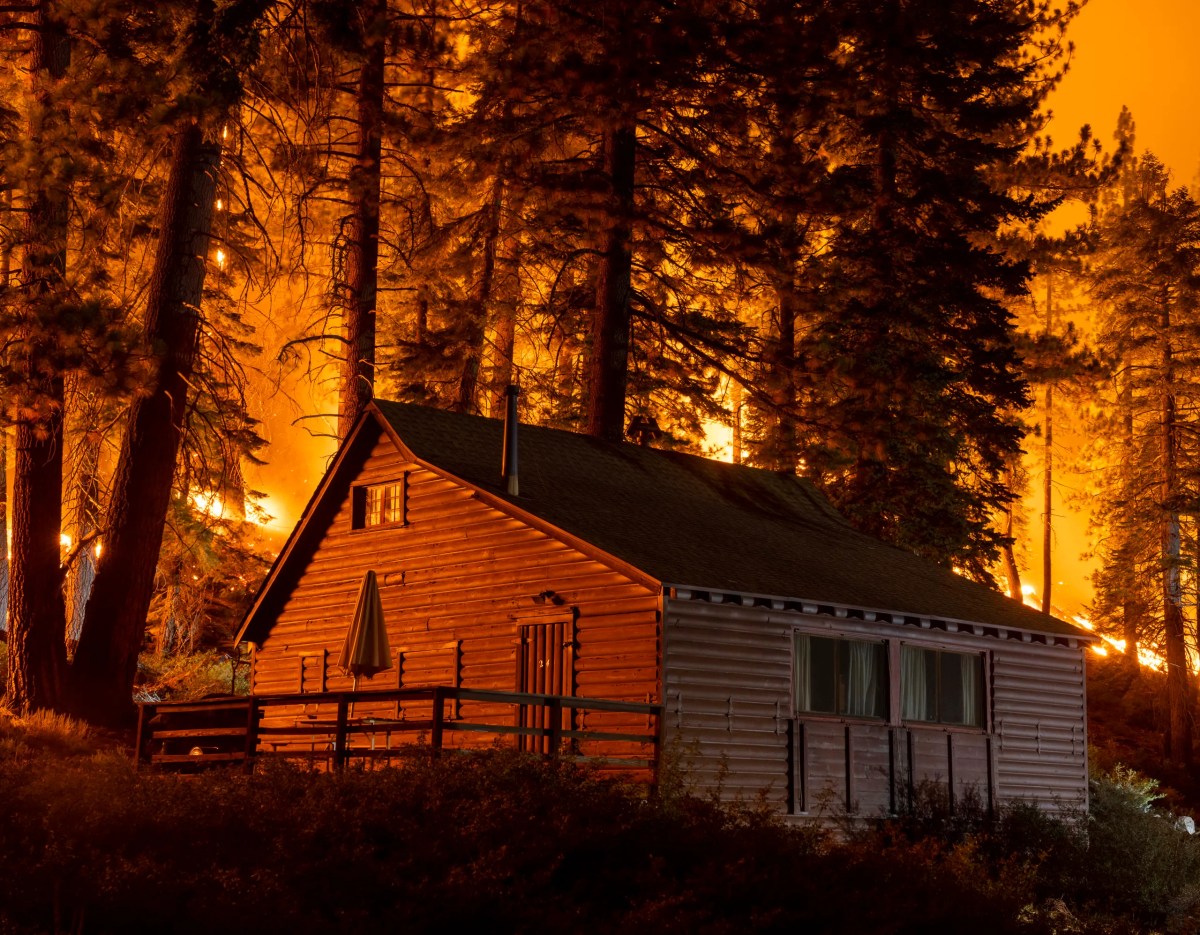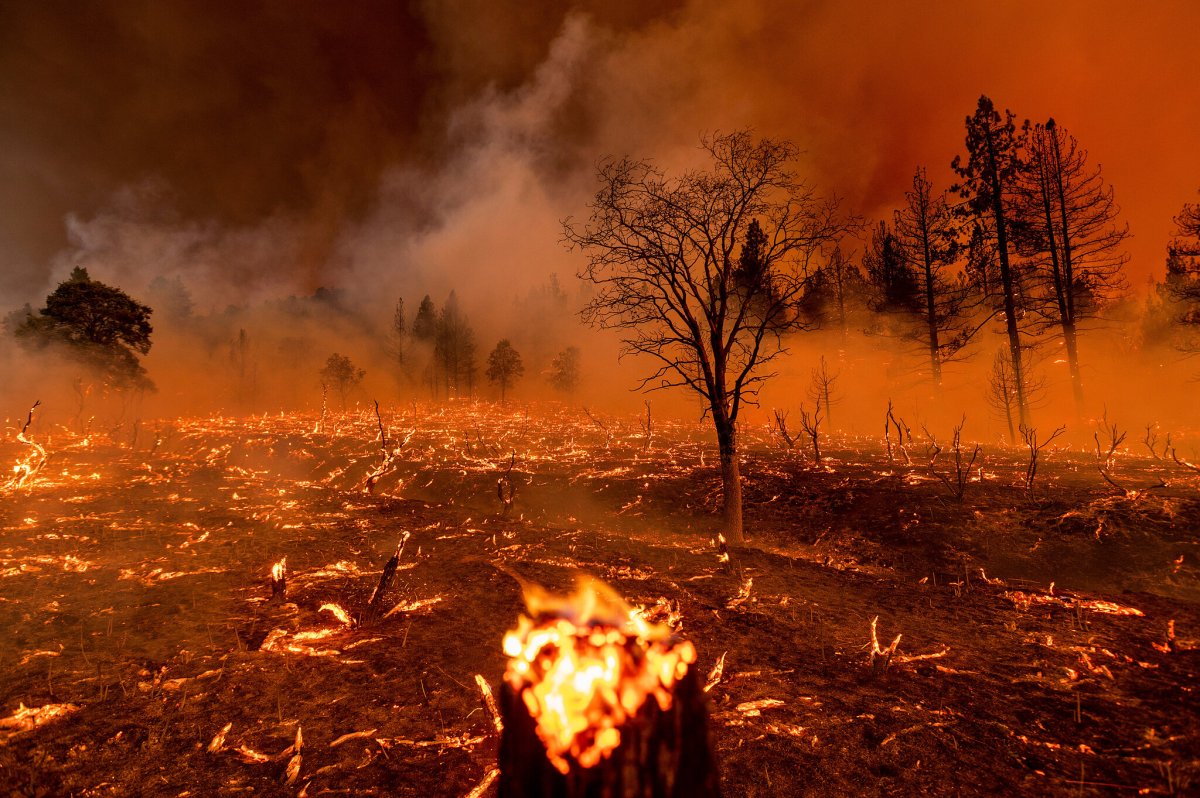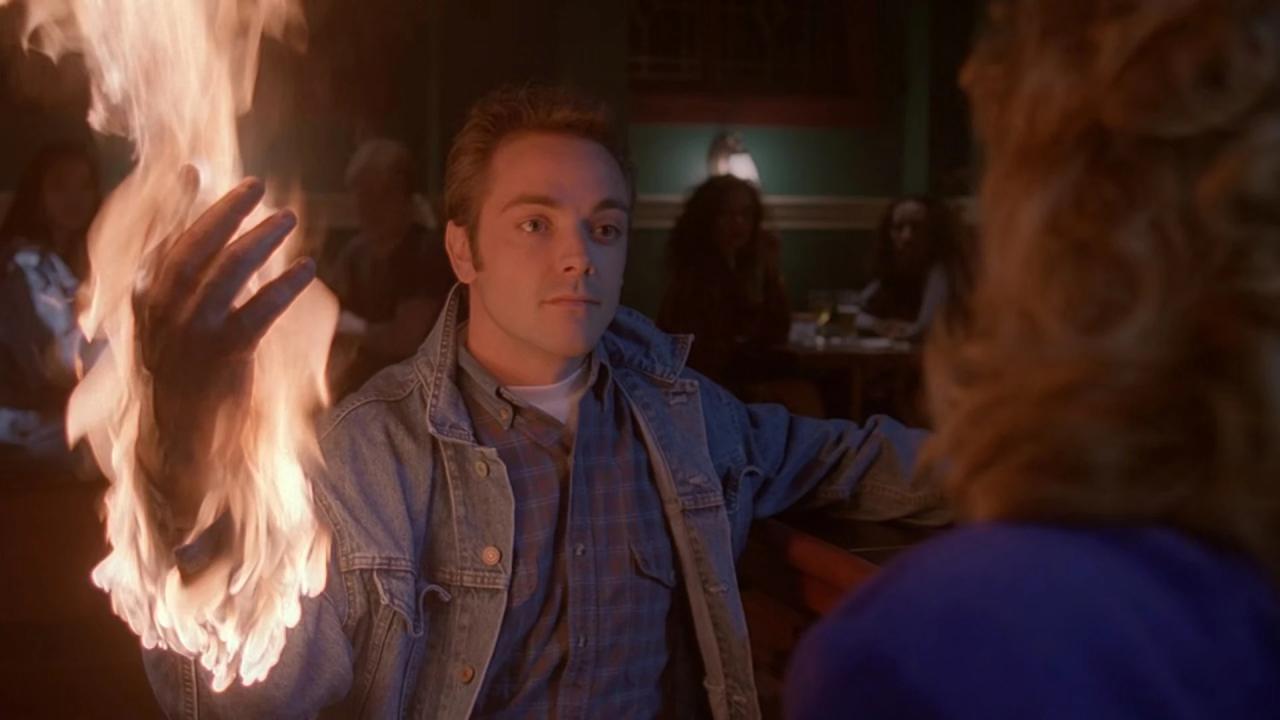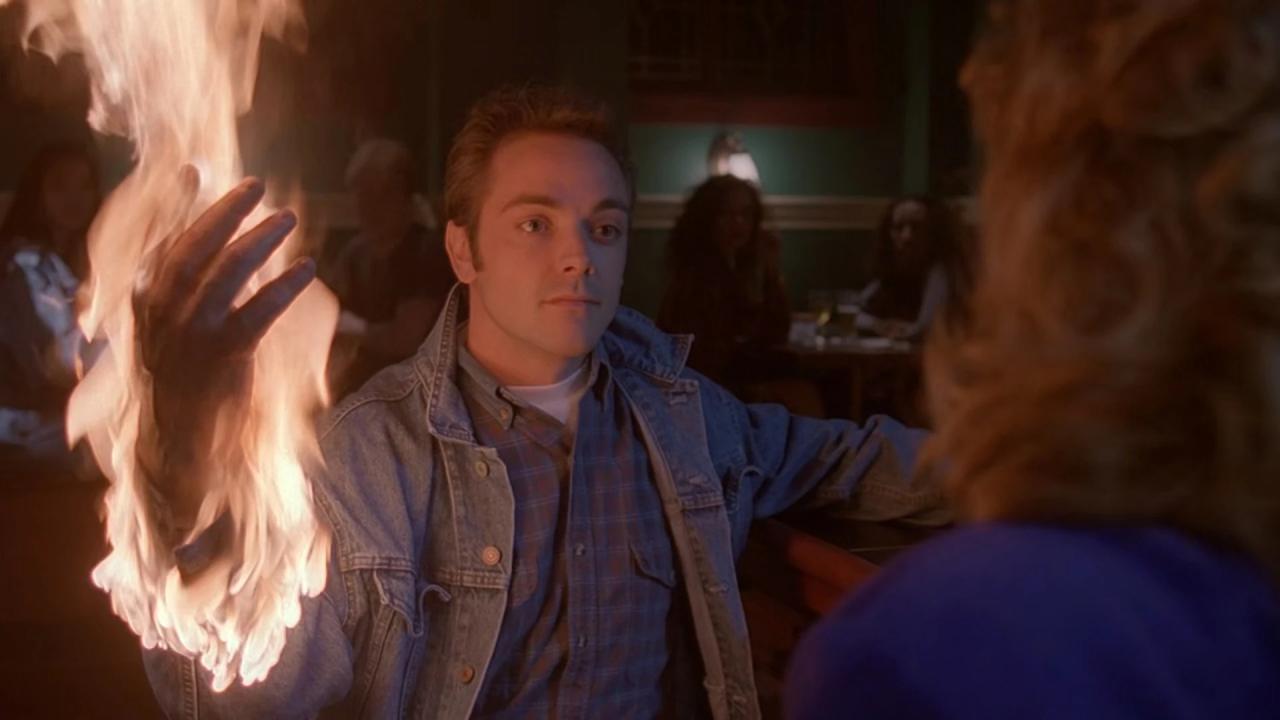‘God was with him’: Actor James Woods describes harrowing wildfire sets the stage for this enthralling narrative. We’ll delve into Woods’ firsthand account of his terrifying wildfire ordeal, exploring the harrowing events, his emotional journey, and the role faith played in his survival. We’ll examine both religious and secular interpretations of his experience, considering the public reaction and exploring the broader themes of faith, resilience, and the power of belief in the face of unimaginable adversity.
Actor James Woods’ wildfire escape story, where he credited divine intervention (“God was with him”), highlights the unpredictable nature of disaster. It makes you think about resilience, like Ontario Premier Doug Ford’s experience, as described in this article: ‘This head’s like limestone’: Ontario Premier Doug Ford unhurt after. Both situations show how even in terrifying circumstances, people can emerge relatively unscathed, leading many to reflect on luck, fate, or a higher power.
From the initial moments of panic to the eventual escape, we’ll unpack the details of Woods’ experience, analyzing his actions, the intensity of the wildfire, and the specific instances he credits to divine intervention. We’ll also explore how the media covered the story, contrasting various perspectives and examining the public’s diverse reactions. Finally, we’ll consider the psychological impact of such events and the role faith plays in coping with trauma.
Actor James Woods’ wildfire escape story, where he credits divine intervention, is truly gripping. It makes you appreciate the fragility of life, a stark contrast to the intensity of a Premier League clash, like the one you can check out here for the confirmed line-ups: Confirmed line-ups | Spurs vs Liverpool. Back to Woods’ experience, his account highlights the power of faith amidst unimaginable danger.
James Woods and the Wildfire: A Divine Intervention?
Actor James Woods’ harrowing experience during a wildfire has sparked widespread discussion, with Woods himself attributing his survival to divine intervention. This article delves into his account, exploring the different interpretations of his experience, the public reaction, and the broader role of faith in crisis situations.
James Woods’ Account of the Wildfire Experience
Woods’ narrative details a terrifying escape from a rapidly approaching wildfire. He describes the intense heat, the choking smoke, and the overwhelming sense of danger. Specific details about the location and the exact sequence of events are less clear from public accounts, but the overall picture painted is one of intense fear and near-death experience. His account emphasizes moments where he felt a sense of being guided or protected, leading him to believe that a higher power intervened to save him.
The physical challenges included navigating through dense smoke and flames, and the emotional toll was undoubtedly significant, marked by fear, desperation, and ultimately, profound relief and gratitude. He reportedly made several crucial decisions during the escape, emphasizing the urgency and life-threatening nature of the situation. The intensity of the wildfire is described as overwhelming, with the environment rapidly transforming into a scene of chaos and destruction.
| Time | Event | Woods’ Quote (Example) | Emotional Impact |
|---|---|---|---|
| (Time Estimate) | (Description of Event – e.g., realizing the fire’s proximity) | “I knew I was in grave danger.” | Overwhelming fear and panic |
| (Time Estimate) | (Description of Event – e.g., a sudden change in wind direction) | “It felt like a miracle.” | Relief and awe |
| (Time Estimate) | (Description of Event – e.g., reaching safety) | “God was with me.” | Gratitude and profound relief |
Interpretation of “God was with him”

The phrase “God was with him” can be interpreted in various ways. From a religious perspective, it signifies divine intervention and protection. A secular interpretation might focus on luck, chance, or perhaps even subconscious actions that, retrospectively, seem miraculously timed. Attributing survival to divine intervention raises questions about the role of chance and human agency in crisis situations. Many similar narratives exist, where individuals facing life-threatening circumstances attribute their survival to faith or a higher power.
These accounts often share a common thread of profound relief and a sense of being guided through seemingly impossible odds. Comparing Woods’ experience with other survival stories reveals both commonalities in the emotional responses and differences in the specific circumstances and interpretations.
Actor James Woods’ wildfire escape story, where he credits divine intervention, is truly harrowing. It makes you appreciate the small things, like catching a big game – check out the details for the Penn State vs. Notre Dame: Time, TV channel, preview for the game if you need a break from intense news. Woods’ experience reminds us how precious life is, even amidst the drama of a football game.
A possible secular explanation for Woods’ survival could involve a combination of factors: his quick thinking, his familiarity with the area (allowing him to choose a safe escape route), and perhaps even a fortunate turn of events, like a sudden shift in wind direction. It is crucial to note that the absence of a supernatural explanation does not diminish the severity of the situation or the emotional impact on Woods.
Public Reaction and Media Coverage
Public reaction to Woods’ statement was mixed. Some praised his faith and saw his experience as a testament to divine intervention. Others were more critical, questioning the attribution of survival solely to a higher power. Media coverage varied significantly. Some outlets focused on the religious aspect of the story, while others provided a more balanced perspective, acknowledging both the religious and secular interpretations.
Social media discussions reflected this diversity of opinion, with passionate debates on faith, chance, and the role of divine intervention in life-threatening situations.
- Some media outlets emphasized the miraculous aspect of Woods’ survival.
- Others focused on the psychological impact of trauma and the importance of resilience.
- Certain news sources offered a more skeptical perspective, questioning the narrative’s religious interpretations.
The Role of Faith in Crisis

Faith plays a significant role in how individuals cope with traumatic events. It can provide comfort, strength, and a sense of meaning in the face of adversity. Faith can influence decision-making during a crisis, potentially leading to actions that prioritize survival and resilience. For many, faith offers a source of solace and hope, helping them find meaning and purpose amidst chaos and uncertainty.
Various coping mechanisms related to faith, such as prayer, meditation, or community support, can be particularly important during disaster situations.
Visual Representation of the Experience, ‘God was with him’: Actor James Woods describes harrowing wildfire

Imagine a photograph depicting the wildfire’s intensity from Woods’ perspective. The air is thick with smoke, obscuring the view, yet the intense orange glow of the flames is visible through the haze. The heat is palpable, and the crackling sound of burning wood is almost audible in the image. The photograph capturing the emotional impact on Woods shows a man visibly shaken, his face etched with exhaustion and relief, his eyes reflecting the trauma he endured.
His body language communicates a mixture of vulnerability and strength. An image depicting the aftermath shows a landscape scarred by fire, with charred trees and debris scattered across the land. Yet, amidst the destruction, signs of resilience are visible – perhaps a lone green shoot emerging from the ashes, or a group of people working together to rebuild. Finally, the image depicting the moment Woods felt “God was with him” would be deeply symbolic.
It might show a beam of sunlight breaking through the smoke, a sudden change in wind direction that diverted the flames, or perhaps Woods himself, looking up in awe, a sense of peace and gratitude evident in his expression.
Conclusion
James Woods’ harrowing wildfire experience, framed by his belief that “God was with him,” offers a compelling case study on faith, survival, and the power of human resilience. His story sparks important conversations about the role of belief in crisis, the diverse interpretations of such events, and the ongoing debate between faith and reason. While the details of his escape are undeniably dramatic, the underlying message resonates with anyone who has faced adversity: the enduring strength of the human spirit and the varied ways we find meaning and solace in challenging times.
Whether you interpret his experience through a religious or secular lens, Woods’ story remains a testament to the human capacity to endure and overcome.
Detailed FAQs: ‘God Was With Him’: Actor James Woods Describes Harrowing Wildfire
What specific type of wildfire was James Woods involved in?
The specific type of wildfire isn’t detailed in the initial Artikel. More information would be needed.
Did James Woods sustain any injuries during the wildfire?
The Artikel doesn’t specify if Woods sustained injuries. Further details are needed.
What was the location of the wildfire?
The Artikel doesn’t state the location of the wildfire. More information is required.
How long did the wildfire last?
The duration of the wildfire isn’t specified in the provided Artikel.
